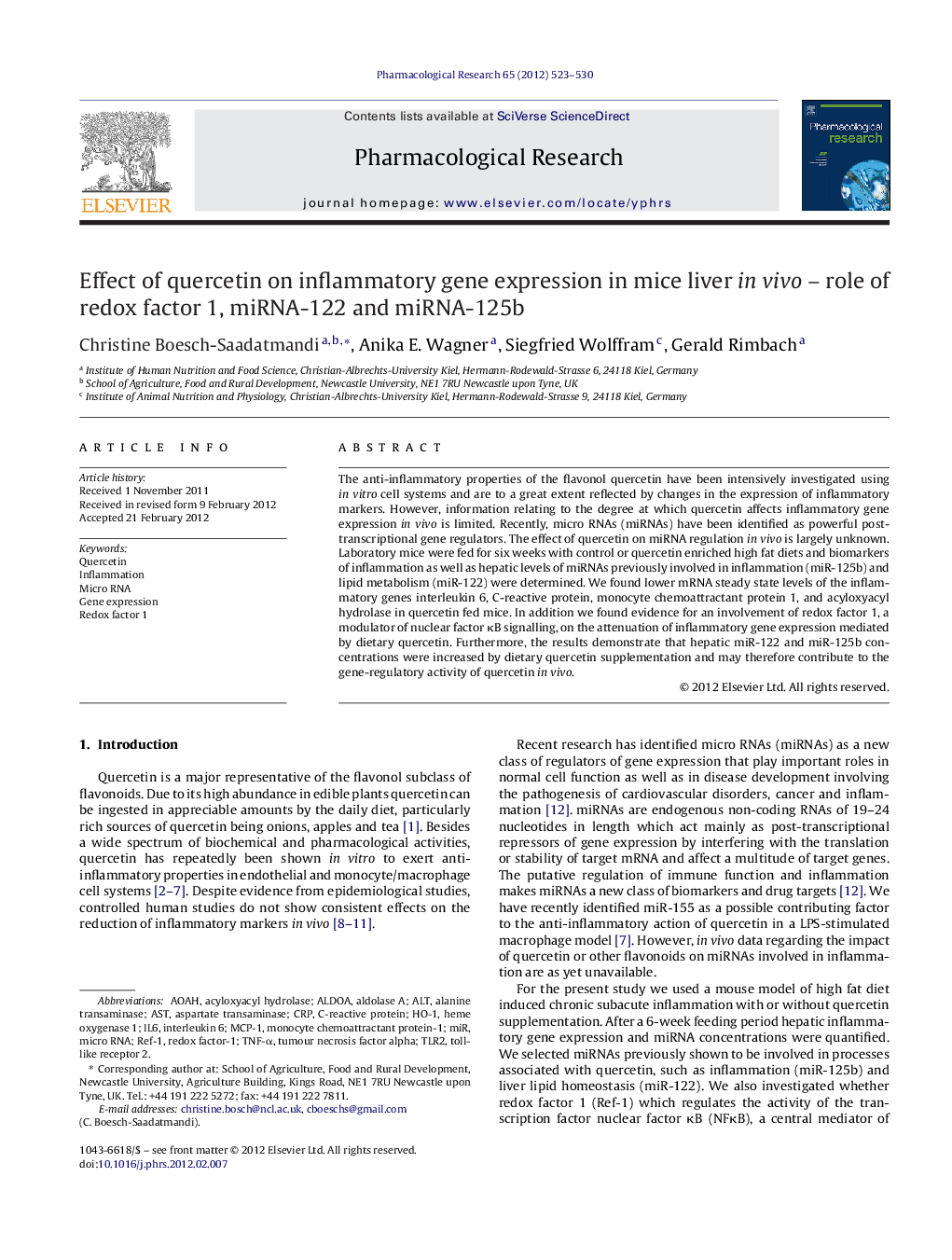| Article ID | Journal | Published Year | Pages | File Type |
|---|---|---|---|---|
| 2562081 | Pharmacological Research | 2012 | 8 Pages |
The anti-inflammatory properties of the flavonol quercetin have been intensively investigated using in vitro cell systems and are to a great extent reflected by changes in the expression of inflammatory markers. However, information relating to the degree at which quercetin affects inflammatory gene expression in vivo is limited. Recently, micro RNAs (miRNAs) have been identified as powerful post-transcriptional gene regulators. The effect of quercetin on miRNA regulation in vivo is largely unknown. Laboratory mice were fed for six weeks with control or quercetin enriched high fat diets and biomarkers of inflammation as well as hepatic levels of miRNAs previously involved in inflammation (miR-125b) and lipid metabolism (miR-122) were determined. We found lower mRNA steady state levels of the inflammatory genes interleukin 6, C-reactive protein, monocyte chemoattractant protein 1, and acyloxyacyl hydrolase in quercetin fed mice. In addition we found evidence for an involvement of redox factor 1, a modulator of nuclear factor κB signalling, on the attenuation of inflammatory gene expression mediated by dietary quercetin. Furthermore, the results demonstrate that hepatic miR-122 and miR-125b concentrations were increased by dietary quercetin supplementation and may therefore contribute to the gene-regulatory activity of quercetin in vivo.
Graphical abstractFigure optionsDownload full-size imageDownload high-quality image (148 K)Download as PowerPoint slide
